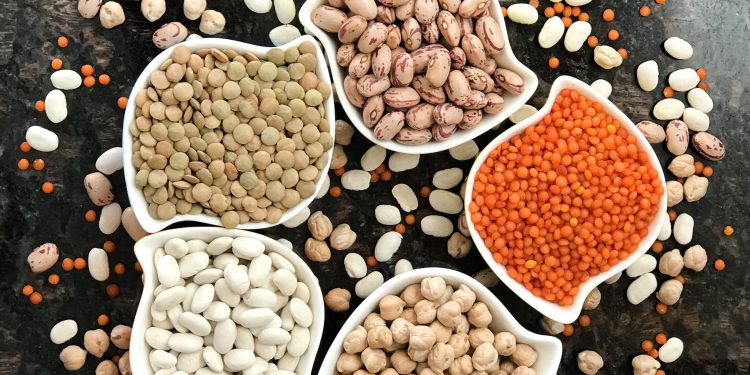Whether you need to store bulk foods in case of seasonal shifts and power outages, or you remember the days of the pandemic and want to make sure you have some extra food on hand, it’s always a good idea to have some dry goods stored away.
There is a science to storing food; if you don’t do so properly, it can go bad.
This blog post will discuss five tips for storing dry bulk food to keep it fresh for as long as possible! Read on to learn more.
1. Store Bulk Food in Airtight Containers
Buying food in bulk can be a great way to save money, but only if you store it properly. Foods like dry beans can last for months or even years if stored correctly, but if not stored properly, they can go bad quickly.
One of the best ways to store dry food is in an airtight container. Airtight containers will keep food fresh for longer and prevent it from going bad. Check the seals on the containers periodically to ensure they are still airtight.
2. Store Bulk Food in a Cool, Dry Place
Food storage is an integral part of any household. In an emergency, having a stock of non-perishable food can mean the difference between weathering the storm and going hungry.
When it comes to storing bulk food, there are a few things to keep in mind. Finding a cool, dry place to store your food is crucial to prevent spoilage and preserve the quality of the food.
This is especially crucial for foods like dry beans in bulk, which need to stay dry to remain fresh and edible. When storing bulk beans, make sure they’re in an airtight container — not the bag they come in at the store — and kept away from sunlight or moisture. In these conditions, dry bulk beans can last up to three years in storage.
To make sure your stored foods stay fresh, rotate your food supply regularly so you can use the oldest items first and avoid waste.
3. Check Bulk Food for Freshness Regularly
Regarding food shopping, the bulk aisle can be a great way to save money. However, it’s important to remember that bulk food sometimes has a different shelf life than individual items. That’s why it’s essential to regularly check the freshness of bulk food items.
One way to do this is to note the date you purchase an item and place it at the front of your pantry so that you’ll remember to use it before it goes bad. You can also write the expiration date on the packaging with a permanent marker.
You can ensure you’re getting the most for your money by checking the freshness of your bulk food items.
4. Discard Any Bulk Food That Has Gone Bad
The old saying “when in doubt, throw it out” is good advice regarding food safety. This is especially true regarding bulk food items such as flour, sugar, and rice.
While these foods may have a long shelf life, they can also go bad relatively quickly if not stored properly. For example, flour exposed to moisture can develop mold, while sugar that has absorbed too much humidity can become hard and lumpy.
If you suspect that your bulk food items have gone bad, it’s best to err on the side of caution and discard them. While trying to salvage these foods may be tempting, doing so could put your health at risk.
5. Use Desiccant or Silica Gel Packs To Keep Bulk Food Fresh
Any foodie knows that freshness is key to a delicious meal. Whether you’re whipping up a summer salad with just-picked veggies or roasting a winter squash hanging out in your pantry for a few months, the quality of your ingredients makes all the difference.
That’s why it’s so important to keep bulk foods fresh, whether you’ve bought them in bulk or harvested them from your garden. One way to do this is to use desiccants or silica gel packs. These absorb moisture from the air, keeping food dry and preventing mold growth. Desiccants can be placed directly in storage containers or resealable bags.
Why Buy Dry Food in Bulk?
When it comes to food shopping, certain items are always worth buying in bulk. Dry goods like rice, flour, and beans have a long shelf life and can be used in various dishes. Buying these staples in bulk can save you time and money in the long run.
Another benefit of buying dry food in bulk is that it is often cost-effective. You can take advantage of bulk discounts and ultimately save money by buying larger quantities. In addition, buying in bulk allows you to stock up when prices are low and avoid having to pay inflated prices during periods of high demand.
Lastly, buying dry food in bulk can help to reduce packaging waste. When you purchase large quantities of dry goods at once, you eliminate the need for multiple containers and packaging materials. Buying dry food in bulk is not only cost-effective, but it is also eco-friendly.
Final Thoughts
Now that you know how to store your bulk foods for the most extended shelf life possible, it’s time to put this knowledge into practice! Experiment with different storage methods and find what works best for you.
Following these tips ensures that your food will stay fresh and feed your family for weeks or months to come!












